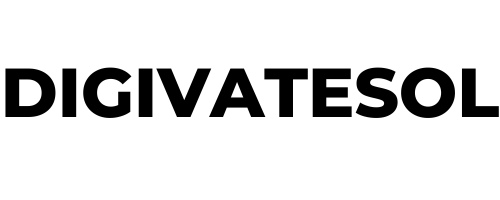What is SEM and Why It’s a Great Investment?
In today’s increasingly competitive digital world, search engines have become an indispensable utility across industries and institutions, including digital marketing, healthcare, education, and eCommerce. They serve as critical hubs where users seek information, ranging from news updates to product offerings, empowering them to make informed decisions. Additionally, search engines provide a fertile ground for businesses to enhance their online visibility and amplify brand awareness.
So, what exactly is SEM?
SEM, or Search Engine Marketing, is a multifaceted digital advertising strategy that leverages search engines to promote products and services effectively. While many are acquainted with the concept of search engines in the context of search engine optimization (SEO), SEM delves deeper into actively engaging with users through paid advertising methods.
For anyone with a website, harnessing the potential of search engines in SEM is pivotal. It facilitates direct engagement with target audiences, accelerates brand recognition, and drives qualified leads. By incorporating SEM into your marketing arsenal, you can expedite the customer’s journey from discovery to conversion.
Ready to embark on your SEM journey?
Our search engine marketing agency is here to guide you through the intricacies of SEM, elucidating the pivotal role of search engines in maximizing marketing efforts. Discover the power of search engine advertising and unlock new avenues to bolster your business’s growth and success!
What Are Search Engines?

Search engines are sophisticated software systems engineered to systematically scour the web and deliver optimal results tailored to users’ search queries. As a business owner, it’s imperative to ensure your website is discoverable by search engines to achieve high rankings on relevant search engine results pages (SERPs).
These engines perform three primary functions:
1. Crawl:
Utilizing web crawlers or spiders, search engines traverse billions of web pages, seeking out fresh and updated content across various formats such as web pages, videos, PDFs, and images. Through this process, new URLs are discovered and explored via embedded links.
2. Index:
Following crawling, search engines organize and store discovered content based on factors like keywords, recency, data relevance, and user engagement. This information is then indexed within vast databases like Caffeine, ready to be retrieved when matching a user’s search query.
3. Rank:
Pages are categorized and ranked by search engines according to their relevance, aiming to deliver the most pertinent results to users. Higher SERP rankings translate to increased visibility and significance for the corresponding query.
An array of search engines, including Google, Bing, Yahoo, and others, are integrated as default options within web browsers. These platforms collectively cater to a vast user base, with approximately 1 in 4 online users—equivalent to around 33 million U.S. adults—relying on search engines daily for research, shopping, brand exposure, and entertainment.
For businesses, search engines offer indispensable utilities, facilitating data acquisition, trend monitoring, competitor analysis, and marketing endeavors. Search advertising presents valuable opportunities for marketers to enhance visibility and expedite sales, complementing organic search engine optimization (SEO) efforts.
Despite the advantages, many companies venture into search engine marketing (SEM) without a comprehensive understanding of its intricacies or the available advertising channels. Consequently, only a select few capitalize on the full potential of SEM solutions.
Let our search engine marketing company demystify the world of paid search advertising for you. Dive into the details and embark on your SEM digital marketing journey with us today.

What Is Search Engine Marketing?
Research indicates that around 81 percent of consumers engage in online research, dedicating an average of 79 days to gather information before committing to significant purchases. This trend signifies a substantial portion of online users displaying heightened purchasing intent.
For businesses, search engine advertising emerges as an exceptionally cost-effective avenue to engage with these highly motivated consumers and bolster revenue streams. Leveraging SEM advertising allows brands to strategically position themselves when consumers actively seek relevant products or services, poised for purchase.
SEM operates on a pay-per-click (PPC) model, strategically elevating your website’s visibility in SERPs and enabling engagement with potential customers across the buying cycle. Our seasoned search engine marketing professionals adeptly bid on keywords to optimize ad performance, bolstering your Quality Score and driving increased traffic and conversions to your landing pages.
Quality Score serves as a pivotal metric utilized by search engines to gauge the quality and relevance of your paid search ads. By effectively meeting the needs of your target audience, you can minimize costs incurred per ad click and conversion, maximizing the efficiency of your SEM campaigns.
How Does SEM Work?
Search engines rely on intricate algorithms to assess the relevance of SEM ads. Successful paid search engine marketing hinges on crafting a well-tailored strategy, targeting valuable keywords, and refining tactics through analytics to streamline ad spending and boost profitability.
To gain a competitive edge, our search engine marketing agency adopts a methodical approach to search advertising:
1. Keyword Research and Analysis:
Employing cutting-edge tools like Google Search Console, our SEM experts pinpoint high-performing search terms while eliminating ineffective negative keywords. This optimization ensures your search advertising budget is efficiently allocated.
2. Ads Creation and Landing Page Development:
Crafting compelling text-based ads tailored to your target keywords, we link them to meticulously optimized landing pages. This approach aims to capture initial search intent, guiding prospects through the sales funnel.
3. Account Setup and Tracking:
Critical for gauging strategy effectiveness, our SEM firm conducts thorough lead-tracking reports and verifies conversion tracking code accuracy on your landing pages.
4. Campaign Launch and Monitoring:
With optimized ads and landing pages in place, we oversee campaign settings, including locations, languages, networks, and devices. Post-launch, we closely monitor ad performance.
5. Evaluation and Analysis:
Benchmarking against predefined goals, we meticulously track key performance indicators (KPIs) such as CTR, Quality Score, search impression share, and cost per conversion. Insights gleaned inform optimizations for future SEM campaigns.
Understanding the intricacies of search engine marketing and its potential, the decision to invest in SEM PPC warrants careful consideration. Allow our SEM company to elucidate the advantages and guide you through the process of capitalizing on this invaluable marketing tool.

